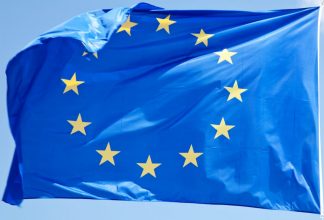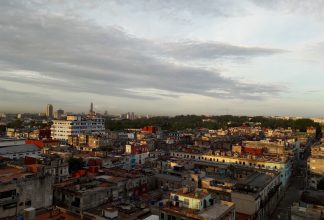Cuba-EU: Vitalise the Values
Letter #21 by Manuel Cuesta Morúa.
In July 2019, Civil Rights Defenders invited Cuban human rights defenders and civil society organisations to contribute with texts on how the European Union should work towards Cuba. This letter is written by Manuel Cuesta Morúa.
Cuba-EU: vitalize the values
The European Union and Cuba signed a Political Dialogue and Cooperation Agreement that attempts to give a new framework to the relations between a nation and a community bloc. The agreement follows the line of others that the European Union has with Central America and Africa, and is based on at least two concepts: cooperating with developing countries and regions, and promoting a view in which any vision of progress is associated to certain values: democracy, human rights and the rule of law.
This means that, in terms of cooperation, the European Union differs from China in a crucial point: considering democracy as an index of well-being.
With this agreement, Europe tries to recover its tradition in the field of international relations. It places dialogue instead of confrontation, and cooperation instead of punishment. The philosophical basis of this tradition is based on the idea that the construction of democratic institutions requires conversation and consensus. What, in itself, is a solid argument that has as a negative experience the violent conflicts that Europe itself experienced throughout the twentieth century.
The return to the comfort of the European spirit happens to years of fruitless tension with the Common Position of 1996. It is true that in 2014, when the negotiation process between Cuba and the EU began, there had not been enough progress neither in European relations, nor in matters of human rights with and in Cuba. And it is clear that from an ineffective Common Position a strategy could not be deduced. At most, some principles were affirmed at the cost of defining a policy understood as a set of proactive actions towards an objective.
Here I am interested in remembering a fact, that in my point of view, is essential in European policy towards Cuba. With the Common Position still in force, progress was made in the project, between 2002 and early 2003, to include Cuba in the Cotonu Agreement in a binding way, and with clear democratic clauses. In January 2003, the government of Cuba presented two letters of intent with the purpose of initiating the process of adhering to that Agreement. Then, in March of the same year, the so-called, with a certain sorting despair, Black Spring came, which backed all attempts to reconcile mutual interests through a negotiation process.
If the Common Position amounted to all the possible pressure that the European Union placed then to promote democratic changes in Cuba, the Cotonu Agreement constituted (constitutes) the space where democratic aspirations joined possible cooperation efforts in a concrete and specific way; necessary in terms of development and investments.
Between one and the other, and from one to the other, circulated what I call the spirit of vital democracies, which lead foreign policy along the path of homonymous values amidst the arduous negotiations imposed by political realism.
From the Common Position to the PDCA, this spirit of vital democracies is not dead, but diminishing. The difference at the moment can be established conceptually like this: If in 2002-2003 Cuba was a non-democratic country that Europe aspired to gradually transition to a democracy, by 2014 Cuba was considered a “one-party democracy”, a very special type of non-liberal democracy, which from Europe is also considered a key hemispheric actor that can only evolve, with laughter and drinks, towards democracy and respect for human rights. An evolutionary vision contrary to the experience that Europe itself is going through. As demonstrated there, the evolution towards democracy is not guaranteed without permanent (political) action by democracy. As Robert Schuman and Jean Monnet knew very well.
This last concept, which is based on the spirit of what I call devitalized democracies, is what underlies the PDCA.
As a defender of the dialogue that I am, in the strategic, conceptual and cultural sense, I believe that this is not a good Agreement. It lacks the solid pillars of the dialogue, which establish that the parties must undertake to respect the ideas established within the negotiations. It lacks strategy, which allows the autonomy of action by one of the parties according to its own vision and its long-term objectives; and it lacks absorption of the context in two important points: the generational change in government, which would give Europe greater capacity for negotiation, and constitutional changes, which would allow it greater and better institutional space to advance the speculative commitments established in the Agreement in relation to human rights.
Article 13 of the Universal Declaration of Human Rights establishes, on two points, the right of everyone to move freely, to enter and leave the country in question without any restrictions other than those established by the courts always in accordance with the law. Well, the new Cuban Constitution says the same thing, and in a whole single paragraph. And it is necessary to delve deep into the doctrine of international law to defend that the Universal Declaration of Human Rights is binding on the States that are part, but what there is no doubt is that the Constitution of each country constitutes a mandatory commitment to the its State.
That the PDCA does not contemplate these political dynamics was, and is, really worrying, which causes a great restlessness, when a country imposes itself above, both, the signed commitments, and above its own constitution. Meaning, nothing obliges him. This situation leads to empty dialogues and testimonial cooperation. The two points that interest the Cuban government to guarantee two related purposes: the modernizing illusion, together with the neutralization of pressure, which enables and masks a weak and ‘progressive’ agreement.
The European Union can remedy the process. I understand that for this it should take two main changes. First, to not treat human rights from a perspective of political realism. This as the latter expresses a correlation of forces, while the former expresses values. Second, Cuba is not a democracy. Important conclusion to treat political rights as human rights and not as institutional capacity.
From these changes there are five steps that the European Union should and could take within the PDCA:
- Treat as binding the commitment to human rights recognized in the recently approved Cuban constitution. Neither the Cuban government nor the European Union can allow gaps for institutions, if they truly want to project themselves as serious actors;
- Grant more visibility to the actors of the Cuban civil society, both independent civil society, and state-supported civil society, and recognize them both as the legitimate actors they are;
- Create spaces for dialogue with civil society at the highest level, regardless of the rounds of dialogue at the institutional level. It is important to de-bureaucratize the vital issue of human rights;
- Hold semi-annual joint meetings between representatives of the European Union and representatives of Cuban civil society;
- Facilitate public meetings between officials of the European Union or its member countries visiting Cuba, and representatives of civil society and the Cuban pro-democratic community.
The European Union could already assume, that Cuba should be its own autonomous space within its analysis and considerations of international relations. Defining policies towards Cuba from the American perspective is not defining a policy for Cuba, nor it is by defining policies from the position and interests of the Cuban government. Cuba is more, and better than its government, and equal and different from its neighbours. Democracy in Cuba should not be thanks to the United States, and yes despite the Cuban government.
If Europe has any interest in Cuba’s future, beyond the interests that are played in the markets, it should look strategically at its vibrant society. Where they stir up, for good, better ideas than in the State.
Manuel Cuesta Morúa and promoters of Propuesta 2020
About Manuel Cuesta Morúa
Graduated in history from the University of Havana (1986) with a specialisation in contemporary history. He holds postgraduate degrees in political science, economics, international relations and anthropology. In 1991 he joined the Cuban Social Democratic movement, of which he was elected general secretary in 1996. Between 1993 and 1996, he worked in the Commission on Human Rights and National Reconciliation. In 2002, he founded the organisation Arco Progresista, an organisation that brings together different organisations and groups of a social democratic nature. Subsequently, he coordinated, along with other organisations and members of the independent civil society, the platform Nuevo País, a plural alternative based on the citizen, whose objective is to reform the nation project and the Cuban political model. He is a member of the Citizens Committee for Racial Integration and a founding member of the Latin American Democratic Solidarity regional platform.
For his work as a human rights defender and his political activism he has suffered numerous arrests and acts of repudiation throughout his professional career. He has written numerous essays and published in several Cuban and foreign magazines; and has participated in different national and international events. A selection of his texts were gathered in the book Ensayos progresistas desde Cuba (CADAL, 2015).

